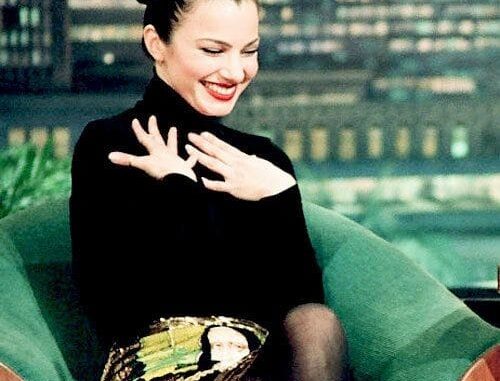
The actress, famous for her role in the 1990s series ‘The Nanny’, has become the face of the performers’ union during the four-month stoppage
Fran Drescher is ecstatic. She fields calls, attends to radio talk shows and interviews and signs posters bearing the acronym of the union she presides, The Screen Actors Guild-American Federation of Television and Radio Artists (SAG-AFTRA). After four months of struggle, the actress, who starred in the 1990s series The Nanny, has achieved her main objective: an agreement that she considers fair for the 160,000 members of the union she leads. In July, Drescher stood before the studios and asked them for more — much more — and despite the curves in the road she finalized an agreement in excess of $1 billion in benefits. She announced the details of the deal at SAG-AFTRA headquarters last Friday, and, in no hurry to leave, sat down to chat with EL PAÍS for an interview carried out together with the EFE news agency, in which adrenaline won out over fatigue.
The meeting was held in a room on the ground floor of the union’s imposing building, where Drescher was joined by Duncan Crabtree-Ireland, national director of the union and chief negotiator. Asked to define in one word how they feel after 118 days of strike action, Crabtree-Ireland responds: “Very excited.” Drescher, known for her eloquence, employs a few more: “Tired, relieved, and euphoric.”

The two acknowledge that their emotion is above all for the people who “put a lot on the line during the 118-day strike to get us here.” “I’m really proud that the deal I think completely justifies the sacrifices that have to be made to get there. And when we look back on this deal in five or 10 years from now, we’re going to say this was the moment when we established the kind of protections in AI and in a number of other areas as well that our members and other people in the industry really needed,” Crabtree-Ireland says. Drescher adds that the “weights of responsibility of the people that were on strike and the auxiliary businesses that were suffering because of the strike.” generated an enormous amount of stress.
“The state of California alone lost $6 billion in business, so I felt like this had to be worth it,” says the SAG-AFTRA president. “We had to make it worth it or we were going to be it. In the end, there was really no option there but to be successful.” And they were: an agreement worth more than $1 billion with improved salaries, healthcare and pension plans, and progress in protecting artists from the effects of advances in artificial intelligence technology.
“I’d never really been in an environment where there was so much anger directed at me by male energy,” acknowledges Drescher, 65, who is no stranger to hostile environments: she created, wrote, produced and starred in The Nanny, a series like few others in the 1990s, where she played almost a parody of herself. The show tells the story of a charismatic Jewish girl from the Bronx who studies an esthetics course as almost her only way out, but overnight finds herself working as a nanny for a wealthy family and (spoiler, a quarter of a century later) falls in love with and marries the father. The series (which she created with her then-husband and now her best friend, after they separated in 1996 and he told her he was gay) gave her a fame she has never disowned, made her a fortune and put her in situations of power that have helped her deal with the current situation. Even so, it has not been an easy process.
“It was really hard on my body. And so as time went on, I was actually coming in less and less and doing the zooms because the only way I could go from my negotiating room into the AMPTP [Alliance of Motion Picture and Television Producers, which groups together the studios] negotiating room was to spend as much time with my dog in my bathrobe,” she acknowledges. “I had to keep my world very small. I rarely socialized. Only the people that were absolutely very close to me, that I felt very supported by, were the ones that I let in, and they understood that I was profoundly tired. All of my energy was directed towards this. Leading a group of this size with so much at stake took everything out of me. I really worried that I wouldn’t live through it.”
Crabtree-Ireland says it was important for him to have Drescher by his side. “Fran and I talked almost every day throughout this entire process, and I think for me that was very helpful because it gave us a chance to just make sure we were on the same page and figure out how to support each other,” he says. “And on a personal level, I just felt a great responsibility for making sure that our members knew that as their chief negotiator, but not an actor, we were all in on the strike alongside them.”